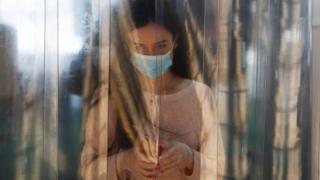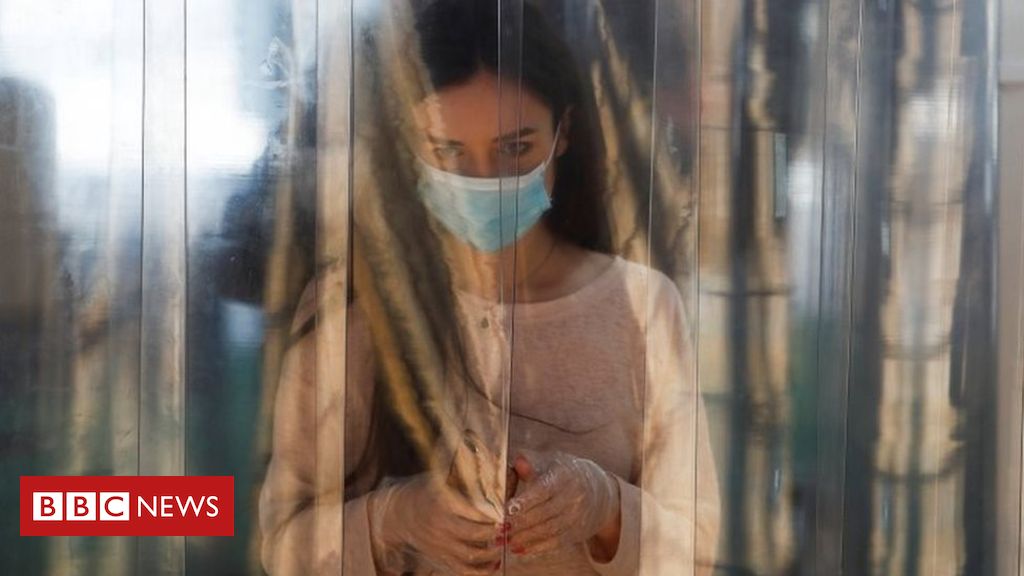 Image copyright
Image copyright
Reuters
The WHO had previously said there was not enough evidence to say that healthy people should wear masks
The World Health Organization (WHO) has changed its advice on face masks, saying they should be worn in public to help stop the spread of coronavirus.
“We have evidence now that if this is done properly it can provide a barrier for potentially infectious droplets,” Dr Maria Van Kerkhove told Reuters.
“And we specify a fabric mask – that is, a non-medical mask,” she added.
The WHO had previously said there was not enough evidence to say that healthy people should wear masks.
The organisation had always advised that medical face masks should be worn by people who are sick and those caring for them.
Globally, there have been 6.7 million confirmed coronavirus cases and nearly 400,000 deaths since the outbreak began late last year, according to the data complied by America’s Johns Hopkins university.
What is the WHO’s advice?
The organisation said its new guidance had been prompted by studies over recent weeks.
“We have new research findings,” said Dr Van Kerkhove, the WHO’s technical lead expert on Covid-19.
“We are advising governments to encourage that the general public wear a mask.”
At the same time, the WHO stressed that face masks were just one of a range of tools that could be used to reduce the risk of transmission – and that they should not give people a false sense of protection.
“Masks on their own will not protect you from Covid-19,” said the WHO’s Director-General Tedros Adhanom Ghebreyesus.
This is a big shift in the WHO’s guidance on when the public should cover their faces.
For months, the organisation’s experts stuck to the line that masks would encourage a false sense of security and would deprive medical professionals of badly needed protective equipment.
Those arguments have not gone away but at the same time the WHO acknowledges that new evidence has emerged on the risks of transmission.
It points to recent research that people can be highly infectious in the few days before they show symptoms and that some people catch the virus but never show symptoms at all, as I reported last weekend.
So where distancing isn’t possible, such as on public transport and in locations as varied as shops and refugee camps, it’s suggested that faces are covered with homemade masks to avoid passing on the infection.
Over 60s with underlying health conditions should go further, the WHO said, and wear medical-grade masks to give themselves better protection.





… [Trackback]
[…] Read More here on that Topic: famousreporters.com/who-changes-its-advice-on-face-masks/ […]
… [Trackback]
[…] Read More here to that Topic: famousreporters.com/who-changes-its-advice-on-face-masks/ […]
… [Trackback]
[…] Find More Info here to that Topic: famousreporters.com/who-changes-its-advice-on-face-masks/ […]